May 12-18 is National Nursing Week and this year’s theme is “The power of nurses to transform health.” The theme recognizes the tremendous impact nurses have on individuals, communities, and the future of health care.
Today we are highlighting three employed student nurses (ESNs), currently on their educational journeys to becoming nurses.
How would you describe your own personal and professional transformation throughout your educational journey?
Ujay Enemuo: I’ve spent a good part of my adult life in the classroom – both as a learner and as a teacher in my home country of Nigeria. However, nursing school has been the toughest educational journey I’ve ever taken. Starting over in Canada as an internationally educated adult learner came with many layers of struggle. I was adjusting to a new environment amidst the challenges of being an international student. Through it all, the fulfillment of my dream to become a nurse gave me purpose and direction.
Nursing is demanding, and for me, it came with added pressure. The back-to-back assignments, heavy course content, and the strict grade requirements caused a lot of anxiety. I have never studied this hard in my life. I’ve lived on coffee, never missed a class, used every available resource, and stayed close to my instructors who were always supportive.
Every lecture and lab practice, every clinical shift, and every challenge became part of my growth. I learned not just the science of nursing, but the art of resilience. Today, I’m proud to say I’ve fulfilled a childhood dream of caring, and I now stand at the threshold of giving back through the very profession that helped me rebuild my life. My confidence has grown through my experience in the surgery unit as a student nurse, and I believe I have all the qualities it takes to be a good nurse: compassion, empathy, patience, and the ability to truly listen.
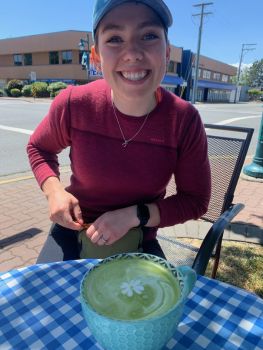
What motivates you to continue in the nursing profession, especially during challenging times?
Layla Morrow: I chose nursing because I knew I needed a career that would be deeply meaningful. Even on the hardest days, the ability to show up for someone in their most vulnerable moments makes every shift worthwhile. The impact of our work isn’t always found in big wins, but in the accumulation of small, meaningful actions.
Nursing is never just about tasks - it’s about compassion, presence, and support. I’ve leaned on the encouragement of my instructors, mentors, and coworkers throughout my journey, and I’ve been glad to offer that same support in return to others.
Having just completed nursing school and having worked as an employed student nurse, I can confidently say that what sustains me is the incredible team-based environment. I’m entering a profession – and a unit – that values collaboration and camaraderie, and that makes all the difference!
Can you describe a moment when you felt that your work as a nurse made a significant impact on a patient's life?
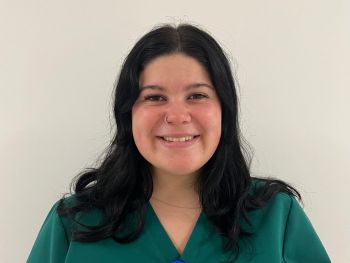
Shallah Luis: I had the privilege of caring for a palliative patient during his final days. The patient needed help regularly with care, mobilizing, and often felt isolated. I vividly remember one moment when I checked on him, only to find he had fallen on the floor while trying to get to the washroom. When I asked him why he didn’t ring the call bell for assistance, he replied, “I don’t want to be a burden. I know you're busy and I should be able to care for myself.” I reassured him that my role was to support him, emphasizing that he could ask for help with anything.
The night before he passed, I brought him his favourite ice cream from the kitchen, sat at his bedside, and chatted with him until he fell asleep. I remember the patient’s family repeatedly thanking me for the care I provided to the patient; and while this is my job, it was fulfilling to know that the care I provided was genuinely appreciated and valued by both the patient and his family.
How do you see the role of nurses evolving in the next decade, particularly in the context of transforming health care?
Ujay: In the next ten years, I believe nurses will be seen more than ever as leaders, educators, and strong voices for change. Nurses are already doing so much more than bedside care – we help guide patients through the system, teach them how to care for themselves, and speak up when something needs to change. This role will only grow stronger.
Layla: Nursing is evolving rapidly. I’m excited by the expansion of education, scope of practice, and nurse-initiated protocols. While the shortage of health care personnel is a very real challenge, it’s also a catalyst for innovation. I feel fortunate to be starting my career in the emergency department, which is a specialty area that historically didn’t take on new graduates. That shift reflects the profession’s growing recognition that with the right support systems in place, nurses can adapt, lead, and thrive in high-acuity settings from early in their careers.
Shallah: In the coming decade, nurses will continue to advocate for patient rights, promote health and independence, and integrate evidence-based practices. I envision the role of nurses evolving to become more multifaceted, with an increased emphasis on preventative care measures through community-based nursing and home care.
Thank you ESNs!
Thanks to Ujay, Layla, and Shallah for sharing their experiences as Employed Student Nurses at NH! For anyone interested in learning more about the ESN program, you can find more information on our website.

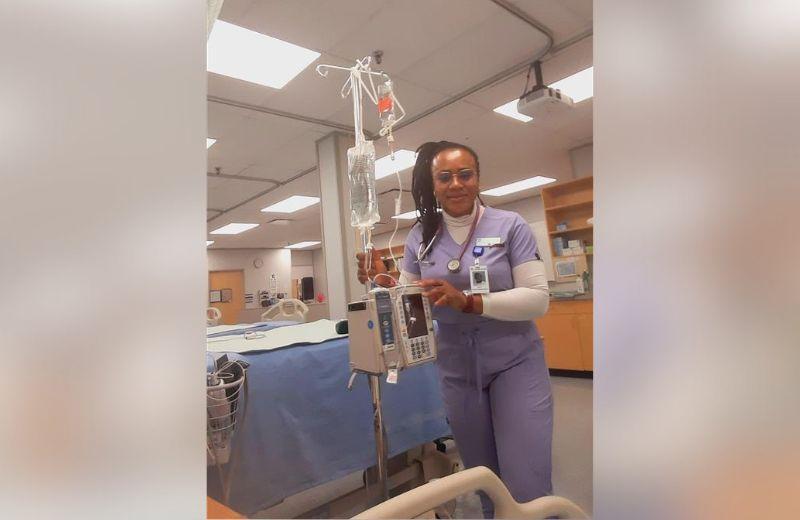


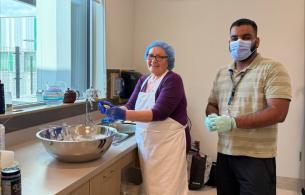


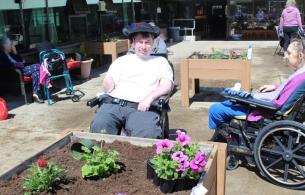
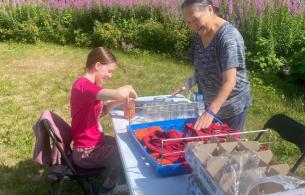
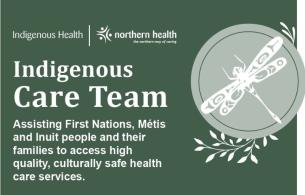



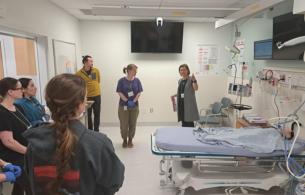

All the best,
Teresa Evangelou